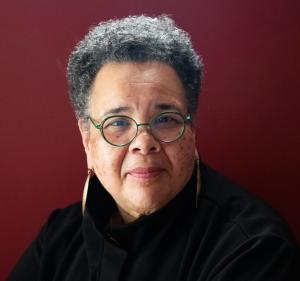Resources

At the end of semesters, I often share a joke with my colleagues: “I love teaching – except for the grading!” There’s a truth hidden in that humor. Grading involves a host of emotions: joy, frustration, pride, disappointment, even confusion. Then, once we’ve finally completed the grading marathon, another emotional rollercoaster begins: student evaluations of teaching (SET).The Emotional Weight of Student FeedbackPlease don’t misunderstand. I genuinely appreciate constructive feedback from students. Their insights reveal my blind spots, push me to be more creative, and encourage me to grow. However, there are also times when I’m unsure how to engage with critical remarks, which can sting and leave me feeling disheartened. In these moments, I worry that my passion for teaching might be overshadowed by hurt or frustration.You’re Not AloneDo we, as faculty, have a safe space to process our emotional responses to student evaluations? How do we take care of ourselves – and each other – when we feel vulnerable? How do we hold on to our calling and commitment to our students during these tense times?During my days as an adjunct faculty member teaching at multiple institutions the anxiety over student evaluations often kept me awake at night. A string of negative comments could threaten my already precarious job situation and some remarks carried undertones of bias regarding my accent or background. I often wondered, “Will these comments jeopardize my chances of being hired again?” and I even tried to guess who might have written them. It was tough not to take things personally.Later on, as an early-career professor, I spent countless hours designing courses, clarifying assignments, and perfecting deadlines. So when a student mentioned that my instructions were confusing, I felt deeply frustrated. I asked myself, “Where is this coming from? Did I overlook something in my teaching?” I ended up spending even more time reflecting, revising my approach, and working hard to address any real gaps in my pedagogy.Finding Balance Amid CriticismSometimes I notice only the critical comments, letting them overshadow the many notes of affirmation and thanks. Other times I skim over the praises too quickly, missing opportunities to celebrate successes and build upon effective practices.If you’ve ever felt torn about how to use student feedback constructively – without losing heart – please know you’re not alone. Feeling this tension can actually be a sign of how deeply you care about your vocation and your students. Many of us go through these emotional swings but remain silent for fear of appearing unprofessional or overly sensitive.Seeking Support and Sharing StoriesAt this moment, I hope you seek trusted colleagues, mentors, or friends to debrief painful comments and interpret them with empathy and deep care. Allow yourself to feel the disappointment without dismissing it. Processing these responses can bring perspective and prevent lingering resentment or burnout.Engaging with feedback can be an opportunity to refine lesson plans, improve communication, or sharpen pedagogical skills. It’s not easy work! But sharing our stories and learning from one another is one way we can practice self-care as educators. We stand in solidarity with each other, striving to grow and thrive in our teaching.I remember a conversation with a first-generation Korean scholar with over thirty years of teaching experience. She confessed that she still faces hurtful biases in student evaluations. After honest reflection, her final piece of advice was: “Sometimes, you just have to delete it and let it go.” We both recognized we had already processed and learned from the feedback. Knowing when to let go continues to be a meaningful form of self-care.Moving ForwardDear colleague, when you next receive that email with student evaluations, take a moment. Recall your passion for teaching, your calling, and your commitment to growth – both your own and that of your students. Let all those emotions guide you toward reflection and learning. And remember, once the feedback has served its purpose, it’s okay to let it go (yes, you can delete it!).

If you teach long enough, you will teach a course that feels flat, has low morale, or even fails. While a totally ruined course is rare, there are moments when the sinking, the malaise—yours and that of the students, happens. We all know this experience.If you have never taught a course that has tanked, then you have likely been a student in a course that has. No real need to recount or describe all the ways a course can fail—the ways a course can “go south” are legion. The more important emphasis is to know that when a course is collapsing it can be rescued. When you feel the course sinking …...do not blame yourself.do not blame the students.do not blame the administration.do not blame your family.do not blame your pets.do not blame the moon phase.do not blame the state of the nation.do not blame the national economy.do not blame climate change.Blaming is ineffective. Finding fault, placing fault, shaming, guilting or scapegoating rarely corrects the problem. Sinking courses are not saved through blame.Do not ignore the situation or pretend that, without adjustment, it will mend. If you sense that there is trouble with the course, the students know there is trouble with the course. When you find yourself watching the clock during your own class session – this is a clue that something needs to be adjusted, altered, changed.Resist the impulse to knuckle down, grin and bear it.Resist the impulse to stay-the-course, stick to your guns!Resist the impulse to “right-fight” and believe whatever you planned, how you planned, is best and “be damned!” anyone who will not comply with your plans.Consider that rescuing a course might take a multi-pronged approach. The recovery of the course might need support from others. Don’t be a hero - please ask for help. If you feel as if the course is weak, ask for help. If you feel lost or disoriented, ask for help. If you do not know how you feel or what to do, ask for help.What help?Get a new perspective, fresh eyes, a more seasoned approach, an empathetic listener. Talk to colleagues. Talk with a trusted colleague at your school, or a trusted colleague beyond your school. You might talk just once, or you might talk several times. Describe the incident or incidents and ask them to listen to what might be changed to strengthen the course.Consider asking a trusted colleague to observe your teaching and then assist you with reflection. These talks are not for confessing to being an imposter. Resist reducing these conversations to disclosing your deep-seated anxieties about public performance (save that for your therapist). Use these conversations to troubleshoot, problem solve and strategize for better teaching and strengthening of your course design.Consider, at the beginning of the semester, creating a small reflection group of colleagues (3 or 4 people) for a semester long conversation so when the course feels like it is not going well you have established conversation partners. The group might be organized around studying teaching resources, together.Talk with a trusted student to get feedback. Talk with a small group of students and ask their opinion. Perhaps, take class time to ask the entire class for feedback and suggestions.Talk to human resource personnel, consult the faculty handbook, know your Title IX procedures. Sometimes bullying behaviors are the culprit in troubled classroom environments.What might be needed?Consider that you might need to recast elements of the syllabus. Consider creating different assignments, adjusting timelines, subtracting some readings or adding new kinds of readings. Add a field trip. Invite a guest speaker.Ask yourself about yourself. Are you too tired to teach well? Are you bored in your own course? Are you anxious? Are you distracted? Are you disappointed, grieving or just sad? Do you have an experience of belonging in your institution and in your own classroom? Your vibe radiates to the students and permeates all aspects of the course.Are the materials in the course too advanced for the students or too inconsequential? Are the materials culturally aligned and relevant to the students’ experiences and expectations? What story are you inviting the students into—is it a story of their imaginations and aspirations?What are the larger happenings of the school, community, region and country that are affecting your classroom? What would it mean to weave these happenings into the conversation?Perhaps it is the students - by which I mean – perhaps you do not know the students and their lives well enough. In what ways can you get better acquainted with your students. Do your students come to class tired after a long day of work? Are your morning students tired after having worked all night? Are they taking too many courses? If they are rested, are they hungry while in your class? Awareness of the conditions of your students might help with addressing some of the malaise.Do not be surprised when a course tanks. It happens to the best of teachers. When a course is “not going well,” do not abandon it or your students. Learn, by experience, how to adjust and adapt to create a meaningful experience for your learners and for yourself.

Student course evaluations can be fraught. Many of my friends don’t even look at theirs, either because it’s so stressful/shameful or because they don’t think there’s anything to be learned in them. Course evaluations are, after all, only one (admittedly limited and often problematic) data point.I do look at course evals, and I tell students I look at them. I think it’s important to consider what the students—that is, the primary audience of and for our teaching—actually experience. That doesn’t mean students get the final say. That doesn’t mean we have to make every change they desire. But it does mean that I want to know how they experienced the course, and it’s a bit hard for me to know without checking.But it’s not often that anything surprises me. It’s usually the same old, same old. This class is a lot of work. Too hard for a required course. Picky grader. Great prof. Class is fun. She really cares. I love our community. I’ve read it all before.But, last semester, I received something new, from a student in my upper-level Religion and Disability class:Emily Gravett assigned course materials that allowed me to critically think about my views on religion and disability. However, as someone who is Catholic the way she explained course material did not align with what all people of that religion believe…. The way she portrayed religious people made it appear as if religious people had it out for people with disabilities. This takes away why people are a part of a religion…. By what I read about this class I thought we were going to go in further in depth about the beliefs of religions. Instead, we read content from opinion–based sources that bashed everything about the religion. I think the way the content was addressed was very inconsiderate for people that belong to a religious group. If the whole class is about accepting others and taking in other points of view, why is every positive view of religion being bashed? Overall more theology should be incorporated with the course instead of throwing opinions out in lecture. Now, this was just one comment. None of the other students said anything like it and I did have other religious (including Christian) students in that class, just like in any class I teach. Certainly, instructors shouldn’t focus overly much on the one-offs or outliers in our course evaluations, especially the more negative ones. Yet I felt this student was expressing something important, which I wanted to take seriously—something perhaps other students had felt, but had not dared to express.It’s certainly never been my intention to make anyone feel badly about their religious convictions. I don’t set out to dissuade anyone from their identities or commitments, just in the same way I wouldn’t proselytize. It should also go without saying that I certainly don’t represent religions as (very bad) monoliths—this is a key concept of the course, that religions are diverse—but clearly this student experienced the course as being very critical and negative toward religions, perhaps specifically her own. And, I have to admit, she may not be wrong. Religions (on the whole, and in the specific) haven’t been great on disability—and this was what the course reflected. The Bible often treats disability as something to be fixed/cured to demonstrate God’s great power. Disability is understood as the result of bad karma by many Hindus. The choreography of Muslim daily prayer is rough or even prohibitive for some bodies. In this class, we read a piece in which a well-known disability scholar critiqued the pope—the head of this particular student’s religion—for singling out a disabled man for a blessing. My guess is that this was the day I lost her.So, what responsibility do I have to how religions are represented or come across? Do I need to couple every negative portrayal, example, or opinion with a positive one? Do I need to make sure I am presenting rosy or complimentary views of religion, regardless of topic? Do I need to be very selective or cautious with the critical pieces I assign? I admit there’s a lot I don’t know what to do about this student’s concern. Here’s what I’ve tried to implement in my current Race and Religion course (which faces some similar issues, given the way that Christianity has influenced conceptions of race, in this country and globally):Added a statement to the syllabus, which I read aloud in class, that clarifies that I don’t agree with or endorse every single piece I assignForecast that there will be some critiques of religions in this class—and acknowledge this may be (understandably) unsettling or even upsetting if you are a part of that religionReminded students that learning can be uncomfortable and that exposure to ideas that you disagree with is an important (an essential??) part of development and lifeIntroduced the notion of meta-cognition and asked them to reflect on certain activities or materials in terms of what they were thinking and feeling during themContinued to reiterate that religions aren’t just one “thing” and that, of course, for all the bad, there’s also quite a bit of goodAssigned pieces on religion being both/neither good or bad, such as Appiah’s TED Talk as well as material demonstrating a range or diversity within traditionsClarified that much of what we discuss in terms of religious people’s behavior is also just human behavior—that is, that it’s applicable to everyone; religious people are usually not different or specialEmphasized to students that it’s okay to stick with values, beliefs, or groups, including the religious, that are imperfect/critiqued (because nothing is perfect)Continued to offer caveats when leading a session that was more based on criticism, such as “of course reasonable people will disagree” or “this may be interpreted differently within the community” or “obviously this doesn’t represent the whole”Assigned more companion (or both-side) pieces for every topic (e.g., “what is Critical Race Theory?” as well as a critique of Critical Race Theory)But I am still grappling with this issue. The reality is that religions aren’t all good (whatever we even mean by this). Robert Orsi, one of my favorite scholars, who grew up Catholic and has written extensively about the study of religion, has written powerfully on just how disgusted he is by the history of Catholicism, that “in the long perspective of human history, religion has done more harm than good and that the good it does is inextricable from the harm.” I think I would be doing students themselves a harm if I pretended otherwise.

Lurking on social media the other day, I listened to colleagues discussing how to respond to a student paper in a philosophy class. The assignment was about our responsibilities towards (nonhuman) animals. The student argued that we can do whatever we want with animals because God has given us dominion over them. Presumably, he had Genesis 1.26 in mind, but none of the course readings mentioned Genesis—or God.People in the social media group had lots of suggestions on how to respond:Tell him that religion has no place in the classroom.Tell him that there should be no theist or atheist premises in academic writing.Just write “Irrelevant” in the margin!That last comment got a lot of likes, hopefully because people found it funny and not because they considered it good advice.The consensus was clear: Tell the student that appeals to scripture are inappropriate in college papers.I don’t think that’s good advice.My colleagues were ignoring something crucial. In this sort of situation, we can do deep damage to our relationship with our student and to the student’s relationship with higher education if we don’t tread carefully. Presumably the student who wrote this paper believes in God and the Bible. His religion will be part of his ethical decision-making going forward, and the Bible will influence his thinking and his actions.Bearing this in mind, let’s not tell this student that his thinking about right and wrong in class must be utterly divorced from his thinking about it outside the classroom.My advice would be: Before writing any comments, identify your larger goals. Here are mine:I want our class discussions to help inform my students’ thinking and actions about ethical issues, and in particular about whether it’s OK to do “whatever you want” with animals.I want students to listen when I try to teach them more things after this and I want other professors to be able to teach them even more things. If I reinforce a student’s likely skepticism about professors and religion, I make that harder.I don’t want my actions to increase the chances that my students go out in the world thinking of higher education as an enemy to religion and God.These goals suggest a different approach. Start by taking the paper seriously:Do you think that’s what the Bible means by ‘dominion’? Some people think so, but I've always thought it meant something more like ‘stewardship.’ I mean, God is the Father, right? So, I think of it like if your parents go out and put you in charge of the family dogs. If they come home and discover that you haven’t fed them or given them water, they’ll be mad at you.What do you think someone who doesn’t believe in God and the Bible would make of your argument? How would you persuade them? For instance, imagine that you’re talking to the author of our second reading or to the other kids in the class.I would count this encounter as a success if the student feels like I’m treating him and his religion with respect and if he realizes two things:“Dominion” could mean “stewardship” instead of “freedom to treat them any way I want,” and I need to think more about which one the Bible meant.I need to talk about this differently or I won’t be able to persuade people who don’t believe in the Bible.That’s a start. Much more has to happen before this student writes at college level. Later, I and his other professors will teach him more.It’s a very small step. Growth and intellectual development takes time. I probably won’t see the result of the learning process that I was part of. But occasionally I do.My greatest success story in this context is a student who came into my Intro to Philosophy class as a freshman, determined to prove that Christ rose from the dead. It was rough going, but by the end of the semester, his sources weren’t cringeworthy anymore, and he was presenting an actual argument. And he still trusted me. He majored in math but took Philosophy of Religion with me as a senior, and he explained that he wanted to continue developing his proof.I braced myself. But during the semester, the class discussed faith and reason extensively, and I was able to ask him (privately): Given that you think about faith as being the important thing, what makes it so important to you to prove that Christ rose? He thought about it for a long time and finally decided that he didn’t need to prove that Christ rose. Instead, he wrote a strong final paper in which he reflected on the meaning of faith, discussing his own experience and the course readings.I rarely get wins that size. But taking my students’ religious views seriously makes them possible.